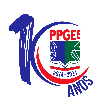Banca de DEFESA: ODAVILMA CALADO POMPERMAIER
Uma banca de DEFESA de MESTRADO foi cadastrada pelo programa.DISCENTE : ODAVILMA CALADO POMPERMAIER
DATA : 11/12/2019
HORA: 10:00
LOCAL: Sala H305
TÍTULO:
PRACTICE WITH WRITTEN CULTURE IN CHILD EDUCATION: CHALLENGES AND POSSIBILITIES
PALAVRAS-CHAVES:
Reading-Writing. Infantile Education. Pedagogical Practices. Historical-Cultural Theory.
PÁGINAS: 138
GRANDE ÁREA: Ciências Humanas
ÁREA: Educação
SUBÁREA: Tópicos Específicos de Educação
ESPECIALIDADE: Educação Pré-Escolar
RESUMO:
Considering that the reading-writing has to be a part quotidian of the children in the Infantile Education through their experience with the culture, assuring their rights as citizens, this research aim to comprehend how the reading-writing is worked in kindergarten and preschool of a public institution in the urban area of Santarém, Pará. Besides that, we seek to identify and characterize the reading-writing activities, accomplished in the kindergarten and preschool classes; highlight the similarities and the differences in the work accomplished in both classes; verify how the studies from the THC and, more specifically, how Freinet’s pedagogical technics can contribute to the appropriation of the writing as a social instrument in Infantile Education. The theoretical references are inspired by the historical-cultural perspective in the human development (THC), from the studies of Vygotsky, as well as other contemporary authors that contribute with a deepening and a development of this field of study, like Silva (2014), Mello (2009) e Brito (2005). The investigation has brought some characteristics of the action-research and was developed in two classes: kindergarten (three years old) and preschool (four years old). It went through three steps: exploratory research, involving follow-up of the activities’ plans of the teachers and participant observation in both classes; intervention, that aimed to provide the teachers instruction based in the THC, in a way that could qualify their educational practices; follow-up of the teachers practices during and after the instruction. To record this accompaniment were used field journal, photographs and video recording. The results revealed that the presentation of the reading-writing is linked to mechanical didactic chores, that remain connected in a planning that is unlinked to the real need and interests of children. Even thought the classes had the same time in the routine and the same activities’ in the planning, they distinguish themselves by their content of the activities. Is noted that preschool is still focused in the presentation of letters and numbers out of a meaningful context for children. The reading-writing activities presented for both classes, despite being interesting, from the point of view of the insertion of children in the world of writing, are still linked to a pre established planning, unlinked of the needs, curiosities and yearnings of children. The instruction enabled the teachers to achieve theoretical knowledge for enhancement of their practices, instigating permanent studies. However, even though the teachers wish to learn, they still base their practices in their previous teaching experiences, expressing superficial theoretical knowledge, which certainly made difficult for them to reflect in a significant way about themselves so that effective changes an occur. Therefore, we noticed the necessity of transformations in the teachers actions, so that we can move forward in an understanding of the ways to work the reading-writing with children in the Infantile Education.
MEMBROS DA BANCA:
Presidente - 1965707 - SINARA ALMEIDA DA COSTA
Interna - 1153251 - EDNA MARZZITELLI PEREIRA
Interno - 1776813 - LUIZ PERCIVAL LEME BRITTO
Externa à Instituição - REGINA APARECIDA MARQUES DE SOUZA - UFMS




